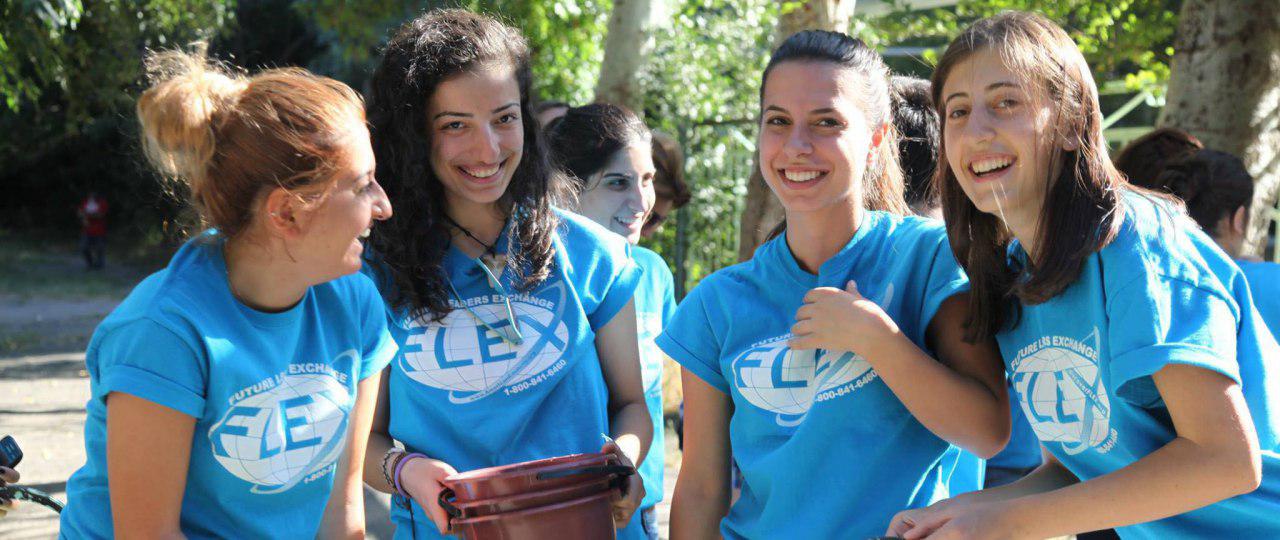Editor's note: Norman has been volunteering at American Councils and reading application essays from hopeful exchange students from around the world for the last two years. His article about volunteering was originally published in his community newsletter.
“I consider myself to be three wars old,” writes a 16-year-old boy from the Gaza Strip.
The high divorce rates in Kenya lead to the “ feminization of poverty,” observes a 15-year-old Kenyan girl.
A Libyan teen declares that “I am a comprehensively developed person.” A 16-year-old Ukrainian girl laments that the “days of my youth are spending very quickly.”
A 17-year-old student from Eastern Europe writes that “we have a clean, not contaminated post-socialist mind. We are the young blood that can change our corrupt and antidemocratic system.”
And from a Moldovan girl, “I am a metal that is going to turn into gold.”
Brief glimpses of a teenage world that I understandably am no longer familiar with and from a part of the world I have never been to. So, what am I doing?
Thanks to my fellow Capitol Hill Village member Dawn Nelson, for the past two years I have served with others as a volunteer evaluator for applications by teens to spend an academic year in the United States, living with host families and attending the local high school; 15–17 years old, they come mostly from Eastern European countries plus some outliers. They come under the auspices of the Future Leaders Exchange (FLEX) program, administered by American Councils for International Education on behalf of the US Department of State.
The FLEX program, with over 26,000 alumni, is daunting in its accomplishments and its challenges. Almost 38,000 applied for the 2018–19 cycle, and at the end only 922 were accepted—less than three percent. It is of necessity a rigorous and at times a grueling acceptance process, with interviews in their home country, teacher recommendations, grades for three terms, several essays, English only.
As I read their essays, I often thought of these teenagers, many from small towns and villages, traveling sometimes overnight to a FLEX test center, and the morning after their arrival subjected to interviews and the need to respond in English to essay questions. My role and that of fellow evaluators is at the penultimate stage where we read all the essays, including a letter to their potential host family, review the comments by their teachers and interviewers who met them at the test center, and then put down our overall evaluation and a score.
Yes, it ain’t easy. I’m a slow guy, so each application takes me one to two hours. Sometimes trying to decipher what a student means requires pressing on through foggy English, amplified occasionally by challenging penmanship, and leaves my head hurting. But I keep going, driven, like my fellow evaluators, by admiration for the students who persist through the FLEX gauntlet. There is the life they portray in their essays—of love for their families, the warmth of friendships, often the pleasure they find in their home town, the exuberance of their volunteering to help others, often orphans, and in somehow navigating through troubled lives—e.g., the applicants whose families have suffered because of the war in eastern Ukraine.
There is an obligation to do your best not only for the students with undaunted hopes, but also for the host families who will have a newcomer living with them for a year and have a right to be protected from unpleasant surprises.
Not least, there is the somewhat anomalous task of an old guy judging, say, a 15-year-old guy from Mongolia doing his best under great pressure. How do I unburden myself of my biases, as our American Councils trainers call them, and empathize with the very young from a world I don’t know? Still, I’ve found the effort of doing that, even at best partially successful, refreshing and sometimes self-revealing. And then I’ve been introduced to new things, like beatboxing and vareniki: look it up.
Interested? Email volunteer@americancouncils.org to learn more.


